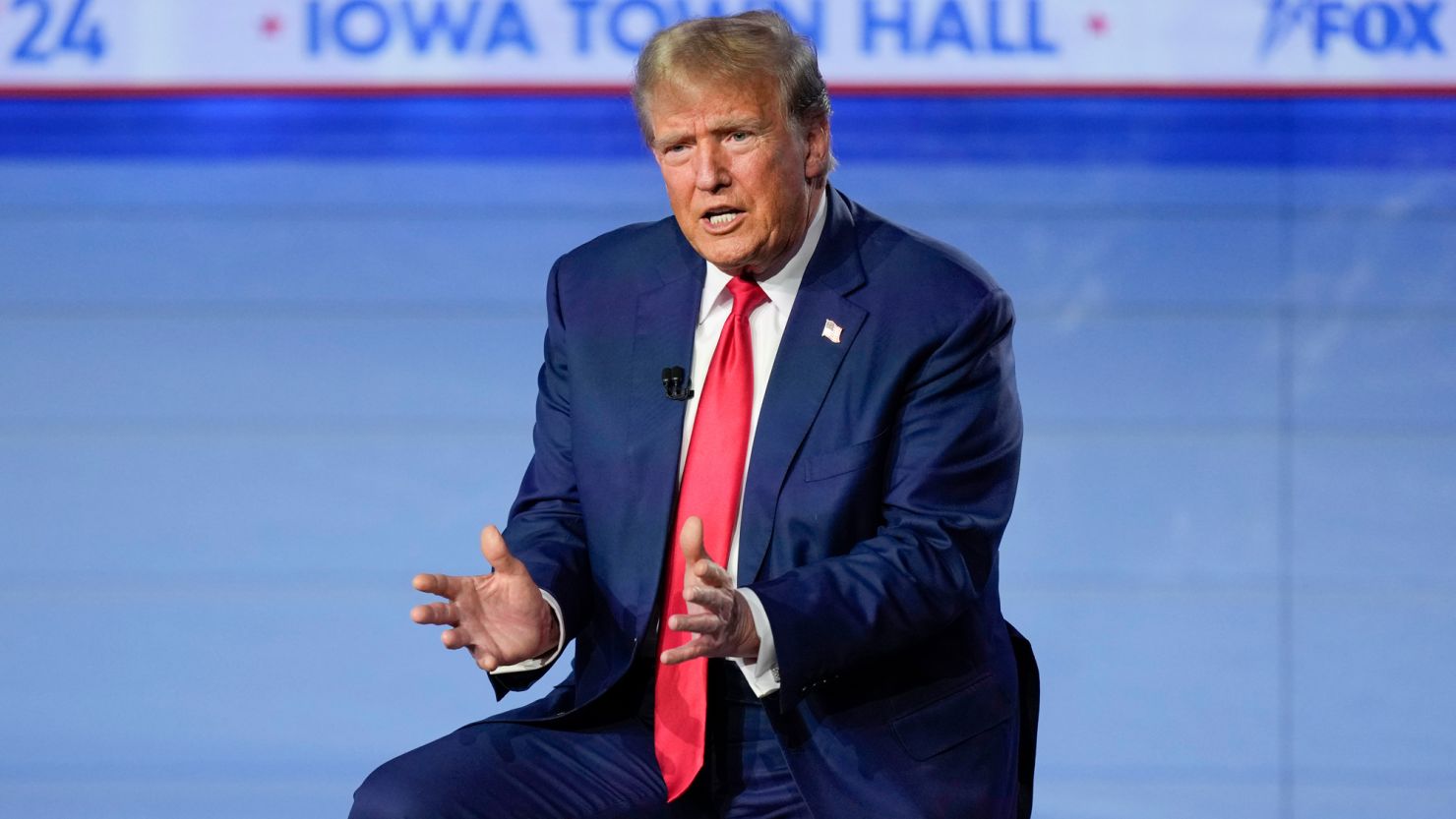The GOP primary is detouring again from the debate stage to the courtroom

This dual reality of the 2024 election playing out in the run-up to Monday’s Iowa caucuses will take another surreal twist on Thursday when the ex-president deserts the conventional campaign trail again – for his second court appearance this week.
That means the focus will quickly shift from the fireworks of Wednesday night’s CNN debate between the former South Carolina governor and Florida’s governor, who are fanning out across snowbound Iowa on Thursday, seeking to win the post-game of the first head-to-head debate of the presidential race.
Trump is skipping between court appearances on the east coast and the first-in-the-nation caucus state: On Tuesday he showed up at an appeals court hearing in Washington that his team is hoping will delay his federal 2020 election interference trial beyond the November election. He’s got rallies planned in western Iowa this weekend in the final countdown to caucuses he hopes to dominate enough to quickly end the primary contest and to take the fight to President Joe Biden.
Trump has reinvented the primary campaign
Trump’s skill at capitalizing on his four criminal indictments has been the decisive factor in the Republican primary race — far more so than anything Haley, DeSantis or other candidates have done on the debate stage or in their town halls or rallies.
The approach was epitomized by the way Trump monetized his mug shot taken at a Georgia jail after he was booked in another election interference case in the critical swing state. It also invigorated an initially lackluster bid for a second term, renewed his bond with anti-establishment GOP voters and presented his rivals with a political conundrum they are still struggling to solve: How to criticize the ex-president’s conduct while avoiding alienating his supporters and sympathizers.
The most outspoken critic of the ex-president’s behavior, former New Jersey Gov. Chris Christie, mastered the first part of that equation – but at the expense of the second part. He’s no longer in the race, after folding his White House bid on Wednesday, in a move that could help Haley squeeze Trump in the New Hampshire primary a week after the caucuses.
Haley, especially, and DeSantis test a new tone toward Trump
The failure of Haley and DeSantis to meaningfully exploit Trump’s greatest potential general election liabilities — the fact that he could be a convicted felon by November and that he tried to cling to power after losing in 2020 – has been a feature of the entire campaign.
But both candidates made more of an attempt to take advantage of Trump’s legal morass at the Iowa debate — albeit carefully.
Haley, as she has been throughout the campaign, was the more forceful of the pair on this issue, uttering what will be a political apostasy for many Trump supporters. “That election. Trump lost it. Biden won that election,” she said. “He says January 6 was a beautiful day — I don’t think that it was a beautiful day, I think what happened on January 6 was terrible. … President Trump will have to answer for it.” Haley has often spoken more euphemistically about the ex-president’s election stealing effort, saying it’s time to move on from his “chaos.”
Both candidates were also asked to respond to an argument made by Trump’s lawyers in the Washington appeals court on Tuesday that the ex-president was immune from prosecution for everything that occurred in office — even his election meddling. In a pivotal moment in the hearing, one of the three judges got Trump’s attorney to claim that if a president ordered SEAL Team Six to assassinate a political rival, he could only be prosecuted if he were impeached and convicted by Congress first.
“That’s ridiculous, you can’t go and kill a political rival and then go and claim immunity,” Haley said during the debate.
DeSantis sought to use the question to pivot to a warning that Trump could be compromised in a general election by his legal woes. “Obviously, that attorney gave the case away,” the Florida governor said. He predicted Trump would lose his appeal in the federal election interference case and face a “stacked DC jury of all Democrats. … I don’t think he’s going to get through that.” DeSantis warned that his plight would detract from GOP efforts to make the election a referendum on “the failures of Joe Biden.”
The slight hardening of tone probably did little to placate Christie, who lambasted other GOP candidates when he suspended his campaign earlier in the day. The former New Jersey governor expressed disgust about the timidity of candidates who are afraid to take on Trump for fear of alienating his voters. And after days of calls for him to quit to give Haley a free lane to challenge Trump in the Granite state, he fulminated at the “smallness of campaigns who spend more time arguing and worrying about who should get out of the race than they have spent going after the front-runner.”
“I would rather lose by telling the truth, than lie in order to win,” Christie said.
The one thing that Christie’s campaign proved is that there is no nationwide constituency for a Republican candidate willing to tell harsh truths about Trump, his legal liability or the threat he appears to pose to democracy if he wins in November. So while Haley and DeSantis sometimes lack the stomach for a fight against Trump, they may be making a solid strategic calculation.
But that begs another question. If they are unable to use every potential political attack against Trump, how can they beat the strongest front-runner in any contested presidential primary race in living memory?
And why then are they running at all?
CNN


